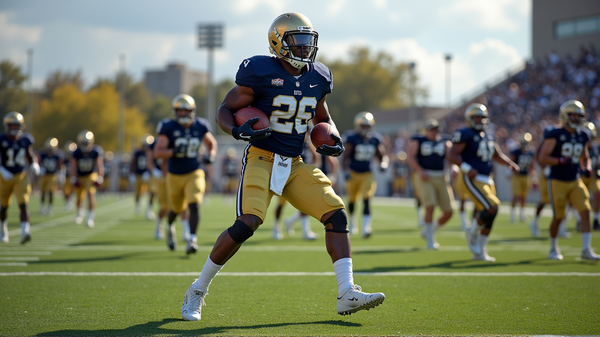Rodrigo Bentancur Faces Potential 6-12 Match Ban Amid Racism Accusations Involving Teammate Son Heung-Min
In a shocking turn of events, Tottenham Hotspur midfielder Rodrigo Bentancur is facing serious allegations of racism, which could result in a ban of six to twelve matches. The accusations stem from an incident involving his teammate, South Korean forward Son Heung-Min, during a casual exchange with a journalist.
The controversy arose when a journalist asked Bentancur if he could have Son’s jersey. Bentancur's response, however, immediately sparked outrage and accusations of racial insensitivity. He allegedly said: "Sonny? It could even be his cousin’s shirt. They all look the same, don't they?"
The remark, seen as a racist stereotype, has drawn widespread condemnation from fans and the media alike. Bentancur now finds himself in the midst of an investigation, with a lengthy suspension looming if found guilty of violating anti-racism policies in professional football.
A Shocking Turn of Events for Tottenham Hotspur
Tottenham Hotspur has been known for fostering a diverse and multicultural team, with players from various nationalities contributing to the squad’s success. However, the incident involving Bentancur has cast a shadow over the club's reputation, bringing issues of racism in football back into the spotlight.
Son Heung-Min, a beloved figure not only in the Tottenham camp but also across the Premier League, has been a key player for Spurs for several years. Known for his friendly demeanor and professionalism on and off the pitch, the incident has come as a shock to many, including fans who idolize both Son and Bentancur.
The club has yet to release an official statement regarding the matter, but sources close to the situation suggest that Bentancur could face disciplinary action if the allegations are proven true. Football associations and governing bodies have strict guidelines when it comes to racism, and any breach of those rules is met with severe consequences.
The Fallout from Bentancur’s Comment
The comment made by Bentancur has sparked a broader conversation about racism and cultural insensitivity in football. While some have defended the midfielder, suggesting his remarks may have been made in jest or without malicious intent, the overwhelming majority have condemned the statement.
Racism in football has been an ongoing issue, with players and fans alike working to eradicate such behavior from the sport. This incident involving Bentancur serves as a reminder that even in casual settings, comments rooted in stereotypes can have damaging effects.
Son Heung-Min has yet to publicly respond to the incident, but it is expected that his reaction, along with the club's official stance, will be critical in determining how the situation unfolds.
Potential Consequences for Bentancur
If Bentancur is found guilty of making a racist remark, he could face a suspension ranging from six to twelve matches. Such a ban would not only affect his playing time but could also have a significant impact on his reputation within the football community.
The consequences of racist behavior extend far beyond the field. Players found guilty of racism often face long-lasting repercussions, including damaged relationships with teammates, lost endorsements, and a tarnished legacy. Bentancur, who has enjoyed a successful career thus far, could find himself facing an uphill battle to regain the trust of his colleagues, fans, and the wider footballing world.
It is also worth noting that the incident comes at a crucial time for Tottenham, as they are pushing for a strong season in both the Premier League and European competitions. Losing a key player like Bentancur for an extended period could deal a significant blow to the club’s ambitions.
Racism in Football: A Long-Standing Issue
The Bentancur incident is just the latest in a series of high-profile cases of racism in football. Despite efforts to combat racial discrimination, the sport continues to grapple with incidents of abuse, both on and off the pitch.
In recent years, numerous players have spoken out about the racism they have faced, whether from fellow players, fans, or even in the media. Football governing bodies, including FIFA and UEFA, have introduced campaigns to promote diversity and inclusion, but incidents like this one show that there is still much work to be done.
The issue of racism in football is not limited to one region or one league. From the Premier League to La Liga, Serie A, and beyond, players of different ethnic backgrounds have faced racist abuse. Bentancur’s comment has reignited the conversation about what more can be done to educate players and prevent these types of situations from occurring.
Moving Forward: What Happens Next?
As the investigation into Rodrigo Bentancur’s comment continues, the football world will be watching closely to see how Tottenham Hotspur and the relevant governing bodies respond. There is no doubt that this incident has put pressure on the club to address the situation swiftly and appropriately.
If Bentancur is handed a ban, it will serve as a reminder to all players that there is no place for racism in football, whether intentional or not. Clubs will also likely take this opportunity to reinforce the importance of cultural sensitivity and respect among their players.
In the meantime, the focus will be on how Tottenham manages the situation internally. Will they issue an apology? Will Bentancur face additional internal disciplinary action? And perhaps most importantly, how will Son Heung-Min, the player directly involved in the incident, respond?
Conclusion: A Learning Moment for Football
The allegations against Rodrigo Bentancur, if proven true, underscore the need for continued vigilance in the fight against racism in football. While the sport has made strides in addressing these issues, moments like this remind us that the battle is far from over.
Bentancur’s future, both with Tottenham and in the wider footballing world, may hang in the balance. However, the incident can also serve as an opportunity for growth and education, not just for Bentancur but for players and fans alike.
Ultimately, this is not just a story about one player’s mistake. It is a reflection of the broader challenges that football—and society as a whole—continues to face when it comes to combating racism and fostering a culture of respect and inclusion.




